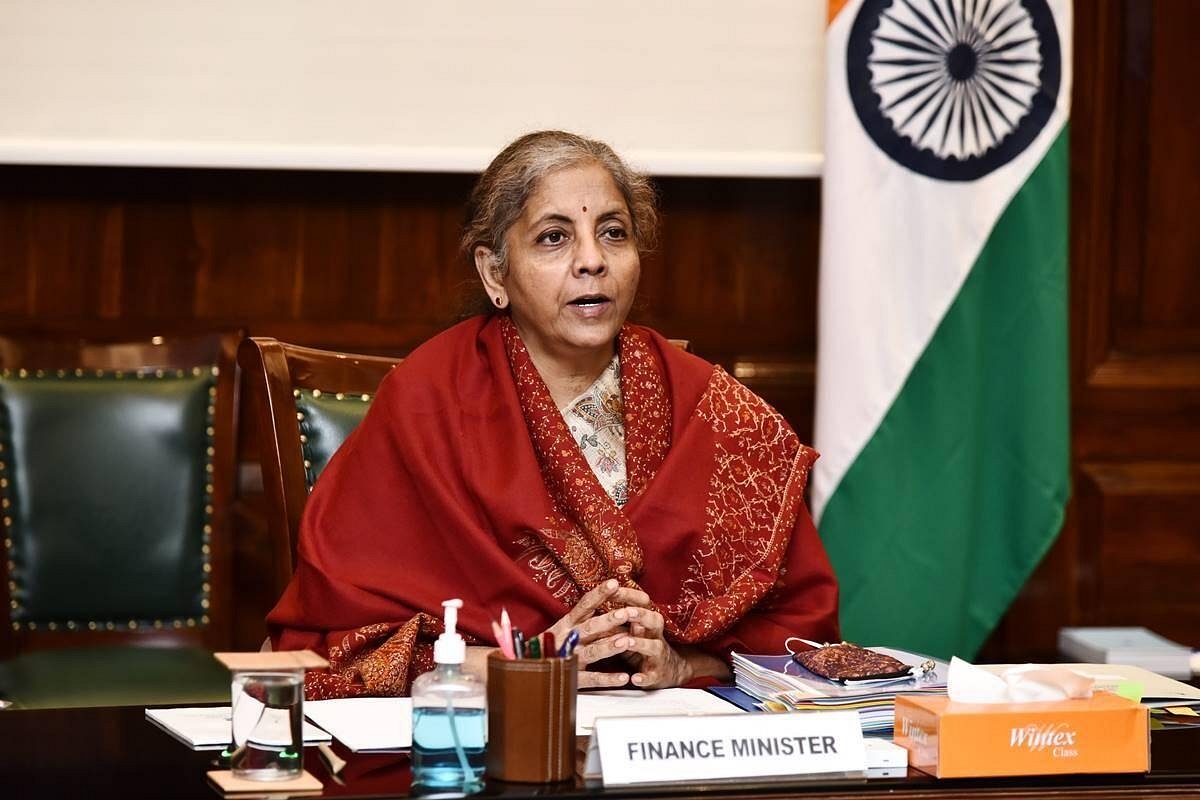News Brief
Neither OPS Nor NPS: Hybrid Pension Scheme Likely To Be Recommended By Central Govt Panel For States

FM Nirmala Sitharaman (Representative Image)
A Central government-appointed panel to look into the issue of pension schemes for central and state employees is likely to recommend that states be allowed to adopt hybrid pension scheme similar to the one implemented by the Andhra Pradesh government.
The panel was formed in April following a wave of states, run by opposition parties, switching back to the dearness-allowance linked Old Pension Scheme (OPS).
The panel's exact submission deadline has not been announced, although it is anticipated that the report will be presented to Finance Minister Nirmala Sitharaman in July, Deccan Herald reported citing a senior official.
The committee is likely to suggest to the Centre to allow states to adopt a scheme similar to the 'Guaranteed Pension Scheme', a hybrid model implemented by the Andhra Pradesh government, which contains elements of both the OPS and New Pension Scheme (NPS), according to the DH report.
The Guaranteed Pension Scheme, in particular, has received scrutiny from the committee and may be adopted as a means of providing a solution that contains the most beneficial components of both existing schemes - the OPS and the EPS.
"The hybrid model (guaranteed pension scheme) is something we are examining closely. A few meetings have taken place and it is likely that a scheme which has the best features of both OPS and NPS will be recommended," the official was quoted as saying by Deccan Herald.
If the recommendation is accepted, the Centre may suggest implementing a guaranteed pension scheme and could offer fiscal and budgetary incentives, such as allowing states to borrow more money from bond markets, according to a second official.
However, concerns over the scheme's impact on the states' budget deficit targets still remain.
The implementation of the OPS scheme can increase a state's outlay, resulting in missed fiscal deficit targets.
Fiscal deficit is the difference between the total revenue and total expenditure of a government in a financial year. Fiscal deficit arises when the expenditure of a government is more than the revenue generated by the it in a given fiscal year.
"The Centre's main concern is that OPS would increase the outlay of the states and thus may impact their stated fiscal deficit targets of 3.5 per cent of respective gross state domestic products (GSDP)," the second official was quoted as saying by Deccan Herald.
The OPS scheme provides fixed pensions to retired employees, while the NPS scheme functions as an investment-cum-pension scheme.
NPS contributions are invested in securities like debt and equity instruments.
Unlike the OPS scheme, it does not guarantee fixed pensions but provides better long-term returns, resulting in a significant lump sum and monthly pensions.
Andhra CM Jagan Mohan Reddy had last week cleared the Guaranteed Pension Scheme that combines the elements of both the OPS and NPS schemes.
The scheme, which was proposed in April, offers a guaranteed pension of 50 per cent of a government employee's last drawn basic pay without any deduction, upon retirement.
To avail this benefit, employees will contribute 10 per cent of their basic salary every month while the state government matches it.
Recently, several Congress and other parties' ruled states, including Rajasthan, Chhattisgarh, Jharkhand, Punjab, and Himachal Pradesh, have notified the central government of their intention to switch to the old pension scheme (OPS) for their employees.
Additionally, these states have also requested a refund of the accumulated corpus under the National Pension System (NPS).
Support Swarajya's 50 Ground Reports Project & Sponsor A Story
Every general election Swarajya does a 50 ground reports project.
Aimed only at serious readers and those who appreciate the nuances of political undercurrents, the project provides a sense of India's electoral landscape. As you know, these reports are produced after considerable investment of travel, time and effort on the ground.
This time too we've kicked off the project in style and have covered over 30 constituencies already. If you're someone who appreciates such work and have enjoyed our coverage please consider sponsoring a ground report for just Rs 2999 to Rs 19,999 - it goes a long way in helping us produce more quality reportage.
You can also back this project by becoming a subscriber for as little as Rs 999 - so do click on this links and choose a plan that suits you and back us.
Click below to contribute.
Latest